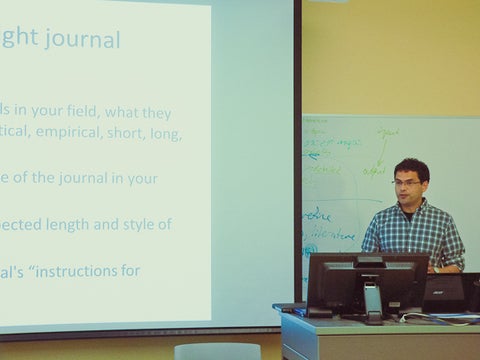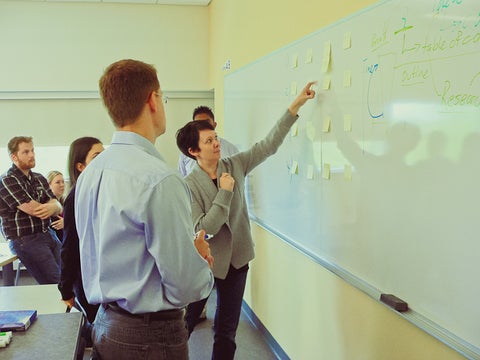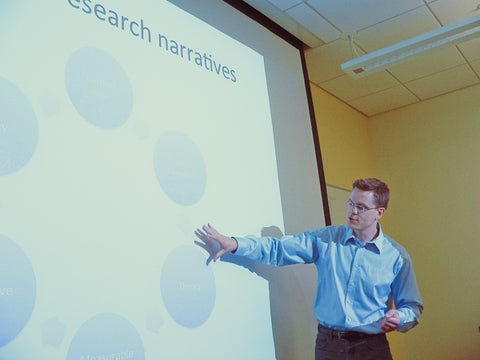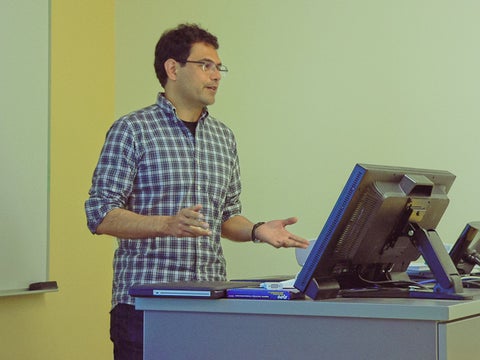Michael Seasons
School of Planning, University of Waterloo
Publishing is a process.
The theme of today’s meeting centred on the practicalities of getting from writing – something we are all familiar with – to actually publishing. The meeting started off with discussions in pairs as to how we individually go about the process of writing. While there were several points of divergence and obvious similiarities, a collective realisation was made as to the notion that the act of writing is really part of a much larger process: finding out and conveying ideas.
Our guest lecturer, Pablo Mendez, offered valuable insights from his own experience in turning research into publications. Mendez, a post-doctoral associate visiting from UBC, emphasized the practicalities of publishing: targeting the “right” journal for your work, setting deadlines, learning to accept criticism, and getting a grasp on the administrative machinations of publishing. On the topic of writing itself, Mendez distilled the advice he’d collected along the way into two parts: (1) the need to know when to stop reading and start writing, and (2) the importance of knowing when to stop writing and get your work out the door.

Pablo Mendez gives a guest lecture during the PLAN 675 class, May 16.
Know when to stop reading and writing, and when to stop writing and get your work out the door
As much as there was an explicit focus on the process of writing and publishing, we returned to discussing the importance of storytelling in research. Considering the target audience of your research and shaping a narrative to target that audience is just as important as mastering the steps involved in publishing. Since urban planning is inherently a practical undertaking, research should not stay in the confines of the so-called ivory tower: we must be aware of crafting research narratives that make our conclusions accesible both to the academic community and policy makers/practitioners.


